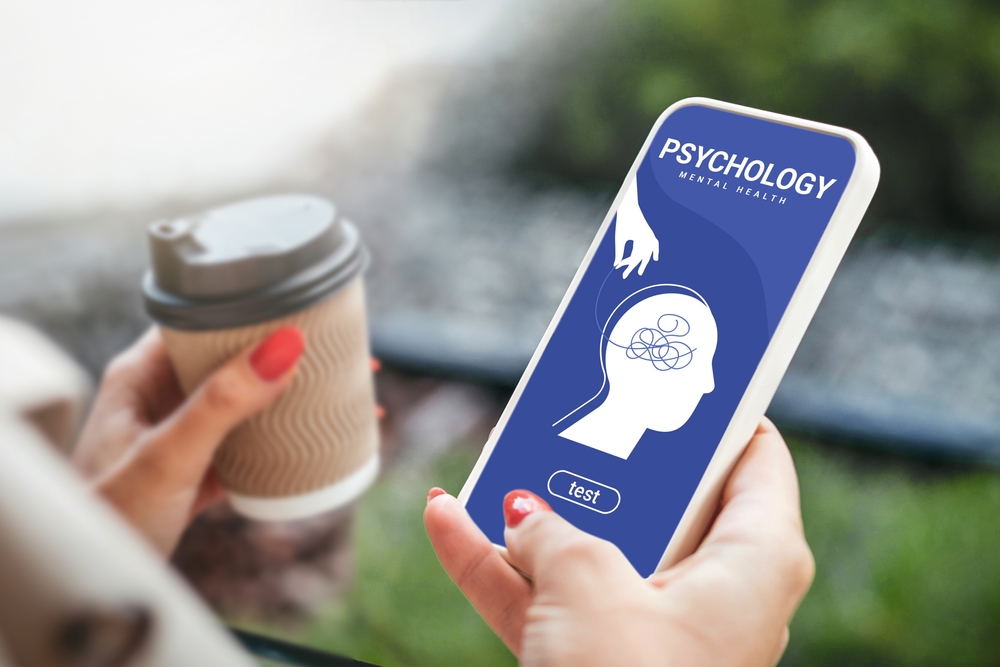Anxiety disorders and depressive illnesses are very common, but only a small proportion of those affected have access to evidence-based care. Psychological treatment provided via the internet can address some of that unmet need.
With all the angst about mental health crises and lack of access to mental health services, a quiet revolution in the routine psychological assessment and effective treatment of high prevalence mental disorders has been largely overlooked. What’s more, Australia is the world leader in developing and providing these treatments, and in making them freely available.
What are digital psychological services?
Digital mental health service (DMHS) is a term used by the Australian Department of Health and Aged Care to refer to any app, consumer forum or internet-based clinical service that addresses mental health concerns. It does not differentiate between services according to the level of care or supporting evidence. Digital psychology services are a subtype of DMHS, staffed by registered mental health clinicians, with strong clinical governance, and which provide treatment based on cognitive behaviour therapy (CBT). In essence, CBT is the identification and treatment of maladaptive attitudes, beliefs and behaviours that trigger and then perpetuate symptoms. Internet-delivered CBT, or iCBT, teaches the principles of CBT in a series of lessons. The routine measurement of symptoms at every stage in contact provides a powerful evidence base for the effect of treatment, and has allowed for quality control and constant improvement in the services that are provided.

Digital and face-to-face care: same but different
iCBT differs from face-to-face therapy in two important ways. Firstly, iCBT is structured and sticks to evidence-based principles that alleviate symptoms without getting side-tracked into personal circumstances. Secondly, iCBT promotes personal agency, by showing patients that they can help themselves through their actions, informed by the experience of many other patients. iCBT treatment courses tend to be text-rich and are not well suited to delivery on handheld devices or to people with limited literacy, although those challenges can be overcome when patients work with a clinician. There is strong evidence that clinician guidance, by telephone or private message, helps with adherence to the courses and in understanding the principles of treatment. The guidance of well trained and supervised clinicians is needed to provide adequate care for the many acutely unwell and complex patients who self-refer, and is essential for making emergency referrals and for professional communication with local services.
Digital psychological treatment really works
The MindSpot Clinic was launched at the end of 2012 by the consortium that won the Commonwealth tender to deliver digital psychological treatments free of charge to Australian residents. The aim was to overcome the barriers to traditional care, of cost, availability, stigma and also access to treatment that is evidence-based. The MindSpot treatment courses were developed at the eCentreClinic of Macquarie University from dozens of large randomised controlled trials that tested different interventions and incorporated feedback from patients. In effect, the patients wrote the courses. In its 11 years of providing iCBT as part of routine care, MindSpot has consistently achieved effect sizes of greater than 1.0 for symptoms of both anxiety and depression, referring to a shift in symptom scores of one standard deviation from baseline, which compares favourably to the effect sizes achieved in trials of antidepressant medications of 0.4 to 0.6, and with very high patient satisfaction and low rates of deterioration. A recent meta-analysis of 31 trials with 3053 subjects reported outcomes of iCBT that are at least as good as CBT delivered in person, although it is still not clear which treatments work best for which conditions. The best results at MindSpot have been achieved with older patients, although people in the depressed phase of bipolar disorder, and even those with mood symptoms arising from borderline personality disorder have done surprisingly well, and we have not been able to reliably predict who will not respond. In any case, not achieving a reduction in symptoms in treatment is an indication for referral to face-to-face care.
Strong clinical outcomes are also reported by two other Australian digital psychology services, This Way Up and MentalHealthOnline, and together these three services provide psychological care to more than 50 000 Australian adults each year. The results have been independently reviewed by researchers from the University of Melbourne, and the recent Productivity Commission report into mental health recommended extending this model of care to more Australians.
Scientific insights from ten years of digital psychological care
The data available through the provision of digital psychology services to very large numbers of people as part of routine care have provided some important scientific insights about mood disorders. One finding has been that the division between anxiety and depression is quite artificial, and that patients with one condition usually have symptoms of the other, and iCBT works just as well for both. We also found that iCBT worked equally for people who were taking antidepressant medication, compared with those who were not, supporting the emerging evidence that the two forms of treatment affect different neurological pathways. The assessments of very large numbers of people from all over Australia allowed us to measure the effect of the COVID-19 lockdowns in real time, and provided an early signal that COVID-19 was not the mental health catastrophe that many predicted. We have wondered if the reductions in symptoms translated to improved function in real life, but we have found large reductions in self-reported days out of role, and many anecdotal reports of re-engagement in employment and study. However, the greatest scientific insight has perhaps been the confirmation of the core behaviours needed to maintain good mood and to recover from depression. We call them the Big 5, of thinking straight, meaningful activity, having goals and plans, healthy routines and regular social contact. The wider adoption of this finding could increase the health and resilience of the entire community.
Digital psychological care is not for everyone
An important finding from MindSpot is that a high proportion of those who registered for the program report that they are seeking information or an assessment rather than treatment. This means that services such as MindSpot have an additional role as a national triage service, informing people of their treatment options and arranging appropriate care for those who self-refer with acute and severe forms of mental disorder but for whom digital psychology services are not suitable. People who disclose suicidal plans, or other dangerous situations, those with untreated psychotic illness and those with severe symptoms who do not improve during the treatment courses have to be referred to local services. Other limitations of iCBT are in the capacity to delve into individual circumstances and to obtain corroborative information, address comorbid conditions such as substance use, and the current limited integration with mainstream mental health services.
Nevertheless, the three main Australian digital psychology services successfully treat tens of thousands of Australians each year, many of whom might never receive any care. Given the prevalence of anxiety and depression in the community, and the uneven distribution of services, digital psychology services are the only way we will be able to address the huge unmet need for evidence-based care. Digital psychology services are not a panacea, but they are highly accessible, efficient and effective, and are arguably the single greatest improvement in mental health care in the last ten years.
Olav Nielssen is a psychiatrist with appointments to St Vincents Hospital in Sydney and the MindSpot Clinic, is a clinical professor of psychiatry at Macquarie University, faculty of medicine and health science, and performs a weekly clinic at Matthew Talbot Hostel for the homeless.
The statements or opinions expressed in this article reflect the views of the authors and do not necessarily represent the official policy of the AMA, the MJA or InSight+ unless so stated.
Subscribe to the free InSight+ weekly newsletter here. It is available to all readers, not just registered medical practitioners.
If you would like to submit an article for consideration, send a Word version to mjainsight-editor@ampco.com.au.

 more_vert
more_vert
This timely article provides a valuable overview of the role and impact of digital psychological services in Australia’s mental health landscape. While the current models have demonstrated significant benefits, enhancing user engagement, integrating with traditional services, adapting for diverse populations, and addressing comorbid conditions are crucial steps toward advancing mental wellbeing. By implementing these enhancements, digital psychological services can become even more effective and inclusive, ultimately improving mental health outcomes for a broader range of individuals.
ADDITIONAL Enhancements for consideration
Enhanced User Engagement: To improve engagement, digital psychological services could incorporate multimedia elements like videos, interactive exercises, and gamification. These features can make the content more engaging and accessible, particularly for users with varying literacy levels.
Improved Integration: Developing integrated care models that combine digital and traditional mental health services could offer a more comprehensive approach. For example, creating pathways for seamless referrals from digital services to in-person care could address cases requiring more intensive intervention.
Cultural and Linguistic Adaptations: Expanding digital psychological services to include multilingual and culturally appropriate resources can make these services more inclusive. Collaborating with community organizations and mental health professionals from diverse backgrounds can help tailor services to meet varied needs.
Enhanced Support for Comorbidities: Integrating modules or referral systems to address comorbid conditions within digital platforms can provide a more holistic approach to mental health care. For example, incorporating substance use screening and intervention strategies could enhance overall treatment effectiveness.
Research and Development: Continued research into which specific digital interventions work best for different conditions and demographics can help refine and improve digital psychological services. Conducting user feedback surveys and pilot studies can provide valuable insights for ongoing development.
Education and Awareness: Increasing public awareness about digital psychological services and how to access them can help reduce stigma and encourage more people to seek help. Public campaigns and educational initiatives can inform individuals about the benefits and availability of these services.
Whilst not wanting to suggest Mindspot is ineffective it is somewhat disingenuous to compare the WITHIN group effect sizes of >1.0 (which just compare pre-post measures) from Mindspot to the BETWEEN group effect sizes of 0.4-0.6 (the marginal difference in pre-post measures between active and control arms) from trials.
The WITHIN group effect size for placebo/sham in RCTs of physical treatments for depression is also greater than 1.0 and is as large as 1.85 for GAD as shown in this very recent umbrella review of >1500 RCTs. https://www.nature.com/articles/s41380-024-02638-x